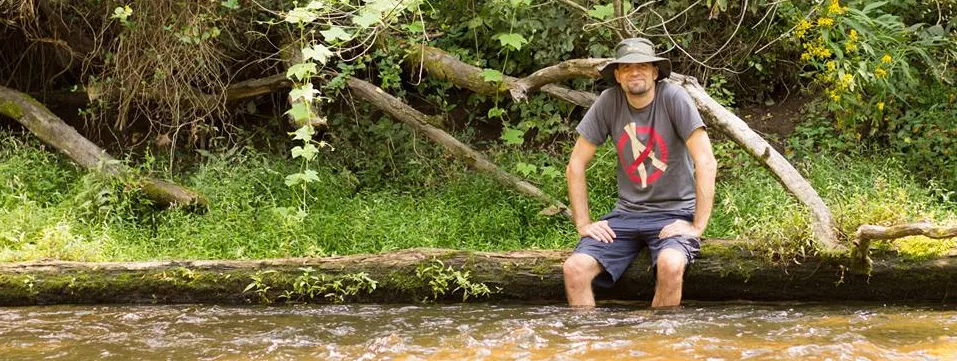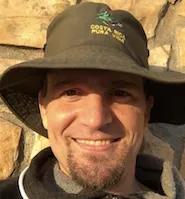
Please, keep that quote in mind as you read this and continue your journey of seeking truth. I'm not suggesting you should stop questioning or that you shouldn't find patterns and highlight inconsistencies in the narratives fed to us. I am saying you'll be more effective at determining reality (and at being a first-rate intelligence) if you're researching the lower depths of QAnon, 4chan, 8chan, 8kun, etc while at the same time researching other possibilities and narratives that debunk the theories you find.
Too often, IMO, people latch on to one narrative and run with it as deep as it will go. This is not good scientific or experiential thinking. If you have a theory, first you have to work to disprove the theory via careful experimentation and data analysis. You have to find out you were wrong about something before you'll gain new information and figure out when you're right.
To illustrate this point, please watch this great video by Veritasium. It's less than 5 minutes long and has over 11M views:
This might be a good time to also mention how the human brain works (give Thinking, Fast and Slow a read for more on that) and how we love pattern recognition.
In psychology and cognitive neuroscience, pattern recognition describes a cognitive process that matches information from a stimulus with information retrieved from memory.-- Wikipedia
It concerns me how few people understand that the brain creates false patterns all the time as part of this pattern matching strategy. Again from Wikipedia:
False pattern recognition
Main article: ApopheniaThe human tendency to see patterns that do not actually exist is called apophenia. Examples include the Man in the Moon, faces or figures in shadows, in clouds, and in patterns with no deliberate design, such as the swirls on a baked confection, and the perception of causal relationships between events which are, in fact, unrelated. Apophenia figures prominently in conspiracy theories, gambling, misinterpretation of statistics and scientific data, and some kinds of religious and paranormal experiences. Misperception of patterns in random data is called pareidolia.
-- Wikipedia
Before writing this post, I hadn't even heard of the word apophenia. Had you?
Many of us know the phrase "conspiracy theory" is being over-used to discredit and marginalize truth seekers on the fringe of the agreed upon narrative. Before you fall for that trap, Google "conspiracy theories that turned out true" to find pages like this describing everything from a heart attack gun, to operation mocking bird, to a "gay bomb." Many conspiracies aren't just theories, but well documented historical fact.
That said, statistically, most of the crap shared online is bogus because humans like to create patterns, even if they have no real connection and violate logical fallacies. Please, spend some time and Know They Logical Fallacies. Instead of throwing around the term "conspiracy theorist" maybe we can instead describe, with data, how someone may have a case of apophenia.
Now, back to the point of this post. As of right now, there are 141 million search results on Google for "Wuhan Coronavirus." This is being talked about all over social media and there are a lot of theories ranging from the Bill and Melinda gates foundation working to depopulate the world to a bioweapons facility engineering this to begin with. How are we to know what is fact and what is fiction? We do so through epistemology, something I posted about 3 years ago: Problem: Alternative Facts or Poor Epistemology?
I think the answer goes back to the original quote I shared by F Scott Fitzgerald. We have to explore the theories while at the same time exploring the counter arguments and still keep our functioning minds at high capacity.
If you have spent some time researching these theories, at the very least, you may want to spend an equal amount of time trying to disprove them. Only then will you know if you have new knowledge or you're falling into the apophenia trap.
Some links to get you started:
Snopes: Should We Be Worried About the New Wuhan Coronavirus?
AFB: The coronavirus plaguing China was not created by a US government agency
Politifact: Fact-checking hoaxes and conspiracies about the coronavirus
FactCheck: Social Media Posts Spread Bogus Coronavirus Conspiracy Theory
Before you commit a genetic fallacy and tell me you'll never read a post from Snopes, I encourage you to take a different perspective. If you are convinced of your position (a very precarious place for a real truth-seeker), view these sites as a way to better understand what you might call controlled opposition. Read their arguments and the supporting data as the next front in the battle for truth. Work to disprove each and every point instead of just sticking to a pattern that feels familiar.
A truth-seeker is someone who wants the truth, even if it doesn't fit their own paradigm or world-view. It requires very little ego because the answers you find may change your very understanding of reality and expose your biases.
My encouragement to the keyboard warriors out there: Keep seeking truth. Leave no stone unturned. And, at the same time, check yourself. Are you sharing information to bring about a greater understanding of truth or to get egoic attention and spread fear, uncertainty and doubt? Fear is a powerful human emotion and it sells well. If you participate in sharing false information leading to increased fear, you may be helping the very people you stand in opposition to who use that fear to control the masses.
Thanks for reading this far. I hope you continue to seek truth, even if no Big "T" Truth can be found.

Luke Stokes is a father, husband, programmer, STEEM witness, DAC launcher, consultant, and voluntaryist who wants to help create a world we all want to live in. Learn about cryptocurrency at UnderstandingBlockchainFreedom.com








